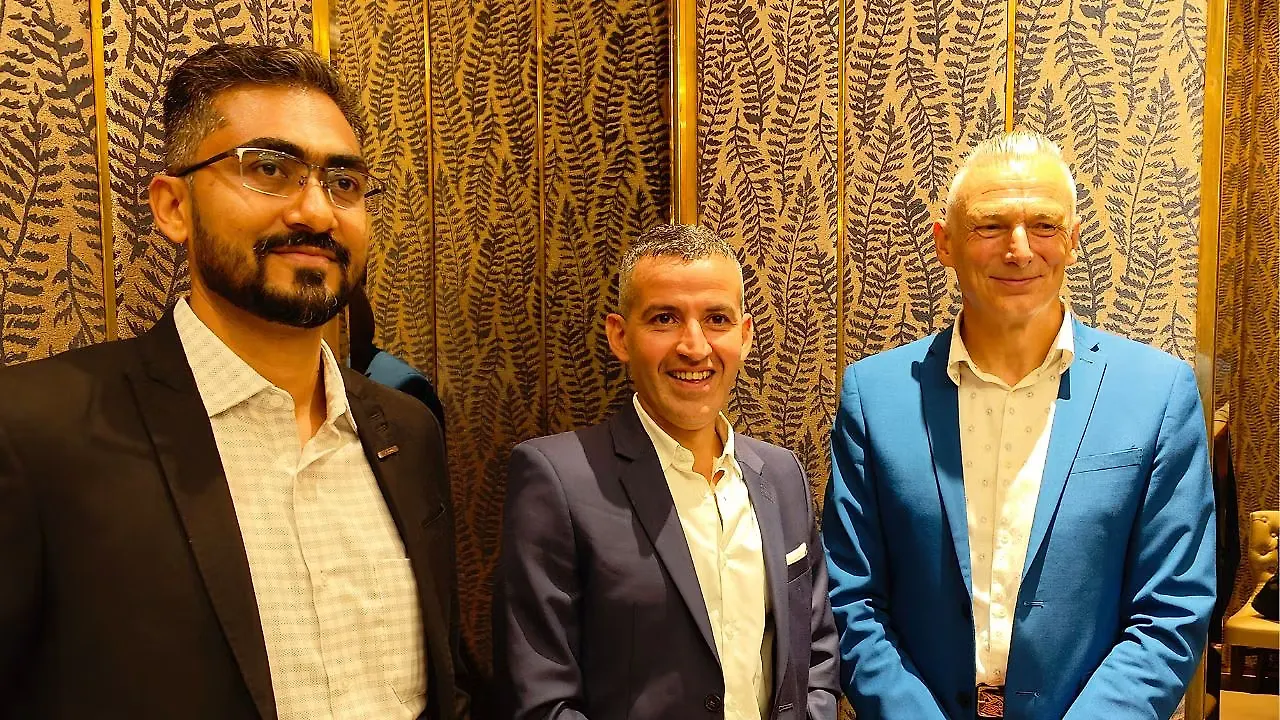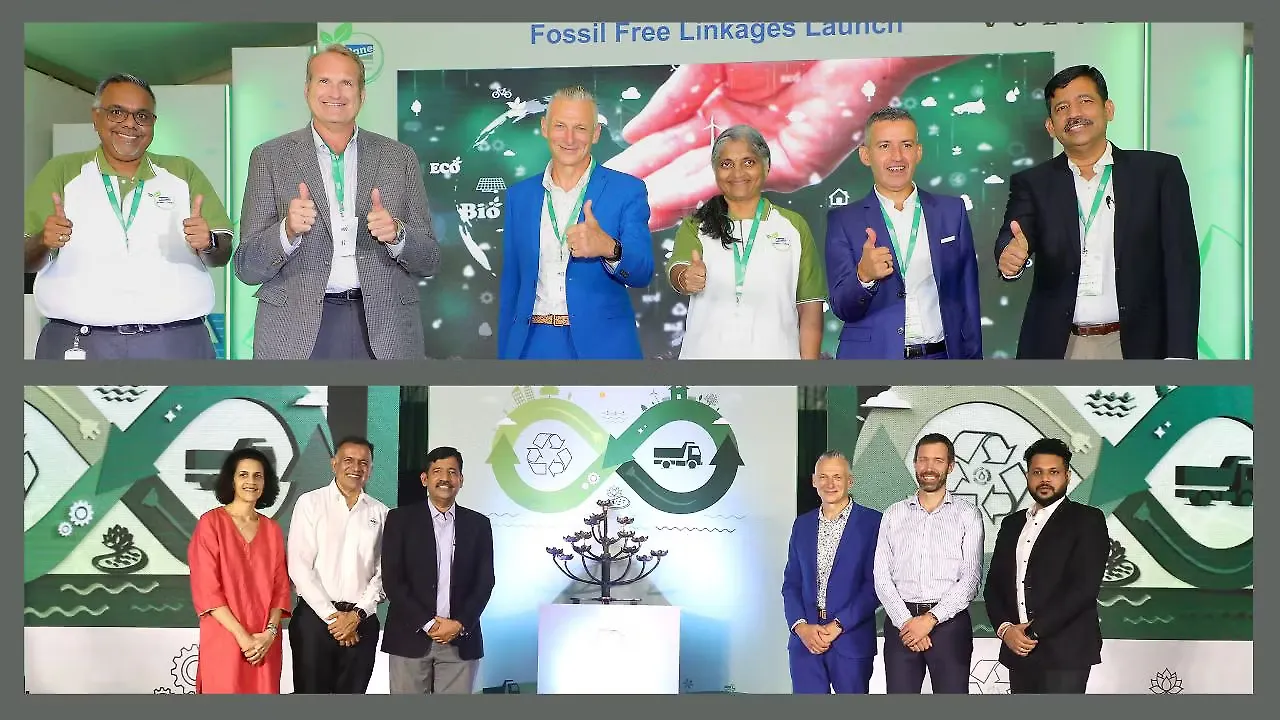
Chennai-based Rane Madras Ltd (RML), a prominent leader in steering systems for commercial vehicles, and Madras Engineering Industries (MEI), renowned for their innovative automatic slack adjusters, have ascended to the ranks of Volvo Group Trucks' elite suppliers.
This collaboration marks a significant milestone as they will supply fossil-free components and potentially reduce CO2 emissions for the vehicle maker. The OEM sources ferrous castings worth Euro 450 million every year, which includes regular and fossil-free castings.
In the coming months, Rane Madras Ltd (RML) will commence the supply of fossil-free tie rods and linkages—critical components in advanced steering systems—while Madras Engineering Industries (MEI) will contribute fossil-free ferrous castings, integral to vehicle construction. These components are crafted through manufacturing processes that are entirely landfill-free and free from toxic substances besides being 100% recyclable. These components are slated to debut in vehicles set to enter the market in early 2025.
India Setting New Standards
In June 2022, Chennai-based Brakes India made history as the first supplier to the Volvo Group to deliver green castings. Among the 150 suppliers from India, including around 25 from Tamil Nadu, Brakes India, Rane Madras Ltd (RML), and Madras Engineering Industries (MEI), all based out of Chennai, have distinguished themselves by joining the select group of vendors providing fossil-free components. Notably, both Brakes India and Rane are recipients of the prestigious Deming Award instituted by Japanese Union of Scientists and Engineers (JUSE), highlighting their commitment to excellence and innovation.

Over the past two years, the components supplied by Brakes India have contributed to a reduction of over 100,000 tonne of CO2 emissions, said, Rajul Khajure, Lead Supplier Quality Engineer, Volvo Group Truck Purchasing, Volvo Group India.
The tie-rods and linkages developed in collaboration with RML are projected to reduce CO2 emissions by 600 tonne annually. Similarly, MEI's fossil-free castings are expected to cut emissions by 12,400 tonne annually for Volvo, a significant achievement with the potential to influence broader industry practices if adopted by additional supply chain partners.Enormous Challenge
“We have a dedicated team working into fossil-free materials,” said, Mark Bamber – Head of Circularity & Remanufacturing, Volvo Group.” He stated that in 2022, the company launched its initiative to source fossil-free components as part of Volvo Group's ambitious goal to achieve climate neutrality by 2040. Reaching net zero by 2040 is an enormous challenge, requiring every member of the Volvo Group to play their part.
'This will not be an easy task,' he reiterated. 'The more our supply partners contribute, the better. This effort must extend throughout the entire supply chain. It’s not just about our suppliers delivering fossil-free components—they depend heavily on the entire supply chain, particularly since the most significant carbon emissions occur during the extraction and production of base materials. Within the Volvo Group, 98% of our emissions originate from the tailpipe of our trucks, which underscores the critical importance of electric vehicles in achieving our 2040 net-zero goal, he added.'

Market Acceptance
Achieving widespread market acceptance for eco-friendly options, particularly in terms of cost, remains a significant challenge. Addressing this, Mokrane Brahmi, Head of Sealings & Suspensions PU at Volvo Group, emphasised the company’s commitment to achieving climate neutrality without driving up costs. 'We believe there is an opportunity to reach climate neutrality by rethinking how vehicles are produced, with some impacts being offset,' he explained.
Brahmi noted that while the rising cost of electricity in Europe and other regions is a concern, alternatives such as solar energy offer a viable solution. Although solar requires an initial investment, it can lead to lower running costs in the long term.
Factoring CO2 Emissions
To achieve carbon neutrality, Volvo Group now factors CO2 emissions into every sourcing decision. 'Sustainability has become a key criterion in our supplier selection process, alongside quality, delivery, cost, technology, and risk management,' Brahmi said. 'We strongly encourage our suppliers to rethink and optimise their CO2 footprint without significantly increasing costs. This approach is based on solid business cases and the transparency our suppliers provide regarding costs. It’s a direction we fully support.'
Sustainability & Profitability
Recalling the words of Martin Lundstedt, President & CEO of Volvo Group, who said, 'Sustainability has to be profitable, and profit has to be sustainable,' Bamber underscored the critical need to strike a balance between these two objectives. He highlighted the importance of supply partners also finding this balance, as introducing financial risk into the supply chain could have long-term consequences for the company. 'Our suppliers must be financially viable—they need to make a profit and sustain their operations,' Bamber noted. 'If they struggle to do so, it will inevitably impact us down the line,' he added.
Also Read:
How Volvo CE India Crafted EC210 Hydraulic Excavator For Bharat And Beyond